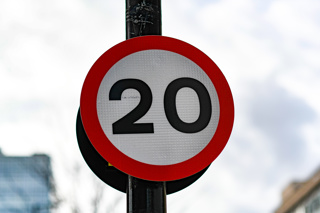The fears of fleet operators are being realised: since the requirement to supply a P46 (Car) form on a quarterly basis ended in April 2010, the number of incorrect tax codes related to company car taxation has risen.
Problems incurred include drivers being charged for multiple vehicles when only operating a single car and receiving tax rebates only to receive a tax demand a few weeks later.
The P46 (Car) required fleets to inform HMRC when a company car was replaced, ensuring employee tax records were kept up-to-date.
However, now employers only need to complete the form when employees have a company car for the first time, or cease to have one. They still supply details on an annual basis on form P11D.
Fleets complained at the time that this would mean some employees paying the wrong amount of tax when they switched company car.
However, the issues appear to run much deeper; they have resulted in a rise in errors related to P11D reporting, despite the correct figures supplied by the employer to HMRC.
Since Fleet News reported on the issue three months ago (April 12), a growing number of fleets have spoken about their concerns.
Sandra Clews, fleet manager at Diversey, estimates that 20 to 30 of her 350 drivers are affected each year. The issue had become much more prevelant in the past four years.
“We have had drivers that have been charged for two vehicles when the P11D statement clearly shows the return date and issue date,” she said.
“We have had drivers who have either switched from a car to a van or a van to a car and HMRC has failed to recognise the switch in benefit-in-kind and adjusted tax coding leaving the driver not paying BIK tax on either vehicle.
“One of my drivers received three different tax code changes in a period of two months.”
Clews also told Fleet News that when a driver can get through to an operator at HMRC they are quickly dismissed and told that they need to go back to their company because they have provided incorrect data.
“Once we demonstrate to the driver the data we have supplied is correct, the driver then needs to start the whole process again in trying to speak to a handler at HMRC,” said Clews.
“These issues cause an awful lot of work for both the fleet department and payroll because we do our best to help the drivers understand their coding and demonstrate that the information supplied by the company via P11D is correct.
“For the drivers, the impact can be immense, because the new tax coding is automated, meaning that the drivers’ allowances will be impacted immediately, not giving them time to appeal or investigate change of the tax code.”
Clews added: “We recently had one driver who received a tax rebate of £340 due to overpayment of tax. Four months later he received a tax demand of £900-plus, resulting in a loss on his net pay of £84 per month.”
A Fleet News poll in April revealed 80% of respondents had drivers who have received an incorrect tax code from HMRC related to car tax.
Bauer Media fleet manager Debbie Floyde said: “We’ve had a few people having all benefits removed and we’ve had a few where the benefits had not even been processed. We’re still assessing the scale of the problem, but it is certainly an issue for me and a number of my drivers.”
HMRC claims that the majority of problems are due to employer or employee errors. Fleets dispute this view.
Fleet News is urging fleets to sign its petition demanding the Government reviews the way HMRC processes the information related to company car BIK and fuel benefits to improve accuracy when issuing tax codes.
Fleet News editor Stephen Briers said: “We need to establish the scale of this issue before putting together a proposal to take to HMRC.”
At its annual conference in May, ACFO announced that it had teamed up with Fleet News to tackle the growing issue of incorrect tax codes.
ACFO chairman Julie Jenner said: “I would urge any fleet operators who have drivers that have experienced incorrect coding issues or any other problems to get in touch with us.
“The more evidence we are able to pull together in advance of discussions with HMRC will be of great assistance.”
To sign the Fleet News petition click here.
Email Fleet News with your experiences (in confidence) at editorial@fleetnews.co.uk.
Six Key questions for fleets and HMRC to consider
1. Is the removal of the requirement for employers to supply a P46(Car) form on a quarterly basis an influencing factor?
2. Are drivers providing the correct information to HMRC, if indeed at all?
3. If a driver provides information, is HMRC inputting it correctly?
4. Is HMRC mis-interpreting information contained with the P11D forms now that this is its only source of data?
5. Is there too much data to deal with at one point in time, i.e. is HMRC inundated with P11Ds all at one time of the year?
6. Are there instances of over- and under-payments? If so, what is the split?
























GrumpyOldMen - 23/07/2012 12:27
Common problem is some confusion with on-line P11D submission. Forms are different. We always used to put 5th April as the "to date" except last year HMRC removed all car benefits on 5th April when we did it on-line. Doh. Anyone else think the printed versions of on-line P11D's are illegible rubbish? Looks nothing like a P11D.